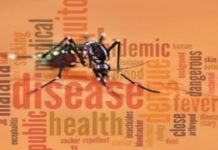Staying healthy has become one of the most vital challenges mankind faces today. The fast food culture has grown ten folds leading to a population who wants to grab something just to fill their stomachs and thus ignoring the nutritional value of such food products. Unhealthy food coupled with a sedentary lifestyle is one of the perfect recipes for many chronic diseases. Even though medical science has also grown at a rapid pace, at the end of the day, it is the right balance of food and nutrition which would make the difference for a healthy life or a life continuously affected by diseases.
Let thy food be thy medicine and thy medicine be thy food
“Let thy food be thy medicine and thy medicine be thy food” advised Hippocrates more than 2,000 years ago. An alluring notion, to be sure. And certainly a sensible one given that food is the source of all of the components that make up the human body. But the famous Greek physician’s dietary prescriptions were hampered by a lack of understanding of the chemical complexity of food and the intricacies of human physiology.
Throughout history, advances in nutrition came about more or less through chance discoveries. Jacques Cartier’s second voyage to the New World in 1535 is a typical example. Many of Cartier’s men came down with scurvy, a potentially deadly ailment for which the French explorers had no solution. But the Iroquois did!
In addition to vitamin C, it became clear that 12 other vitamins, a host of minerals, and a proper blend of carbohydrates, fats, and proteins were required..
These people of the first nations of North America showed the sailors how to strip leaves from a white cedar tree and boil them into a tea that was rich in vitamin C. Today we know why drinking the tea had an almost miraculous effect. Scurvy is caused by a lack of vitamin C, which is present in cedar but was almost non-existent in the explorers’ diet while at sea.
By the 20th century, researchers had discovered a number of links between diet and health. In addition to vitamin C, it became clear that 12 other vitamins, a host of minerals, and a proper blend of carbohydrates, fats, and proteins were required to prevent deficiency diseases. Then as such deficiency diseases were eliminated, at least in the developed world, researchers began to shift their attention to tackling the modem plagues of heart disease, cancer, and obesity.
Information accumulated quickly and today we have quite a lot of concrete information about which foods to eat and which to avoid. Since then nutritional research has exploded, and time and again information about good healthy food is being fine-tuned.
Also Read: Tomato Pill Could be the Next Elixir of Life
North American waistlines have expanded dramatically in the last few years, necessitating a fresh look at various weight-loss programs. But of course, there is more to life than weight control. Recent research has used epidemiological studies, laboratory experiments, and clinical trials to tease out information about certain components of foods and help determine which ones fight disease.
Flaxseed, oats, tomatoes, broccoli and many other foods have immense disease prevention QUALITIES
We discovered that lignans in flaxseed may reduce the risk of certain cancers, that beta glucan in oats lowers cholesterol, and that omega-3 fats in fish fight heart disease and maybe even depression, as well as ease allergies and inflammation-related arthritis pain. Lycopene, the red pigment in tomatoes, can reduce the risk of prostate cancer, and sulforaphane in broccoli has decided anticancer properties.

In the wake of new research findings, food itself is changing. Stanols, isolated from pine trees, are being added to some margarines to reduce blood cholesterol; inulin from chicory, which fosters the growth of beneficial bacteria in the digestive tract, is sometimes added to foods such as yogurt; and some eggs now contain omega-3 fats. On the other hand, we have also learned that hydrogenating fats introduces undesirable trans fatty acids into our food supply, and that many dietary supplements may not live up to the hype that surrounds them.
Numerous food and health questions arise every day in our lives, and the information available is often confusing. Are artificial sweeteners safe? Can specific foods control the symptoms of menopause? Does sugar make children hyperactive? Is a glass of red wine a day good for us?
As our population ages and medical and drug costs soar, it is becoming vitally important to learn how to avoid and treat various problems through the best food choices.
-end-




































